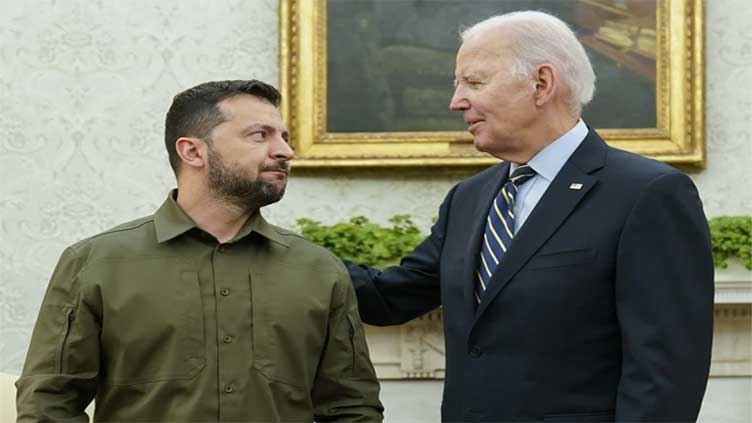The US sanctions more foreign firms in a bid to choke off Russia's supplies for its war in Ukraine

World
The US sanctions more foreign firms in a bid to choke off Russia’s supplies for its war in Ukraine
WASHINGTON (AP) — The United States on Thursday imposed a new round of sanctions on 130 firms and people from Turkey, China and the United Arab Emirates in an effort to choke off Russia’s access to tools and equipment that support its invasion of Ukraine.
The sanctions imposed by Treasury Department’s Office of Foreign Assets Control target third-party firms and people alleged to assist Moscow in procuring equipment needed on the battlefield, including suppliers and shippers. In addition, the State Department imposed diplomatic sanctions targeting Russian energy production and its metals and mining sector.
Thursday’s sanctions targets include Turkish national Berk Turken and his firms, which are alleged to have ties to Russian intelligence. The Treasury Department said Turken’s network arranged payments and shipping details designed to bypass sanctions and move goods from Turkey to Russia.
A series of United Arab Emirates firms alleged to have shipped aviation equipment, machines for data reception and more also were sanctioned. And UAE-based ARX Financial Engineering Ltd. was sanctioned for allegedly being involved in finding ways for Russian rubles to be sent from sanctioned Russian bank VTB Bank and converted to U.S. dollars.
Turken and a representative from ARX were not immediately available for comment on Thursday.
Treasury Secretary Janet Yellen said Russia “is dependent on willing third-country individuals and entities to resupply its military and perpetuate its heinous war against Ukraine and we will not hesitate in holding them accountable.”
“Today’s actions demonstrate our further resolve in continuing to disrupt every link of Russian military supply chain, and target outside actors who would seek to support Russia’s war effort,” she said in a statement.
The latest sanctions build on the thousands of financial penalties imposed on Russian infrastructure and its officials, banks and oligarchs.
Along with imposing individual sanctions, the U.S. and allies have frozen Russian Central Bank funds, restricted Russian banks’ access to SWIFT — the dominant system for global financial transactions — and imposed a $60-per-barrel price cap on Russian oil and diesel.
And after nearly two years of war, the allied nations are still aiming at new targets for financial penalties that block, freeze and seize access to international funds.
Russian President Vladimir Putin asserted the attack on Ukraine was needed to protect civilians in eastern Ukraine — a false claim the U.S. had predicted he would make as a pretext for an invasion. He accused the U.S. and its allies of ignoring Russia’s demand to prevent Ukraine from joining NATO and offer Moscow security guarantees.


